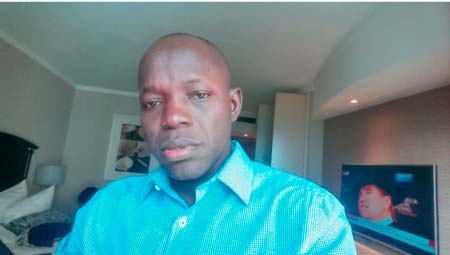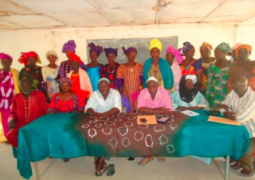
A few weeks ago, Erin Energy Gambia Limited and FAR Limited made an announcement on their partnership in relation to Erin’s Licence in The Gambia. The partnership involved the transfer of parts of Erin Energy’s shares to FAR Limited. The announcement of this transfer has led to many questions on the petroleum sector in the Gambia.
First of all, knowledge of the state of petroleum/oil and gas industry in The Gambia is at best scanty. This is only natural for a number of reasons. I believe the most important reason why there is very little understanding of the industry is that the search for petroleum is at a relatively preliminary stage and on a very small scale. For example, Senegal drilled at least 20 exploratory oil wells between 1960 and 2013. During the same period, The Gambia drilled only 3 oil wells, which also did not result in any oil discovery. Another reason for the limited knowledge about the oil industry is that the search is mainly conducted offshore within our Contiguous Zone and Exclusive Economic Zone in the Atlantic Ocean. This means activities in the industry has been largely out of sight for the average Gambian. Finally, the other important reason behind the low state of knowledge can be attributed to the self-censorship of officials within the government given the reality of the autocratic regime over the past two decades. With the dawn of a new era, this last factor can be eliminated.
Now, here is a bit of information on the ‘transfer of shares’ from one company to another. Erin Energy is a holder of an Oil Exploration and Production Licence in The Gambia, as reported, and has ‘farm-out’ to FAR Limited. Farm-outs are transfer of shares (farm-in/out) agreement through which one party transfers interest in a licence to another party and in return for performance of certain work commitments or paying a part of a certain cost in relation to said licence.
Such transactions are common practice in oil and gas industry during exploration, appraisal, development or production stages. In frontier areas, such as The Gambia, exploration and production cycle normally starts with a small oil company acquiring licence to search for and exploit oil. It would generally carry out specific task in fulfillment of licence conditions. It could dispose part of its shares to bigger company who themselves could dispose part of their shares to yet bigger companies (majors/super majors) in the oil and gas business (after adding value to the concession). These major companies would then develop and produce the oil field if the middle-sized company had made an economic discovery. This disposal or transfer of shares is called ‘farm-in’.
The key reasons for companies to engage in farm-out are as follows:
•Sharing of financial responsibility for work commitments: Oil exploration is a very expensive and risky business. For example, now that oil prices are low, with concomitant low demand for drilling equipment low, it cost conservatively about $40 million to drill one deep offshore exploration or appraisal well. On the other hand, the drilling cost in these locations could rise to over $100 million during booms. These costs notwithstanding, there is no guarantee of success in the sense of discovering an economically viable deposit.
•Reduced exposure to risks: As the saying goes ‘problem shared is problem halved’. By sharing the burden of developing risky ventures, companies limit their risk exposures.
•Broadening knowledge and sharing of skills: By pulling the resources together, companies broaden their knowledge and expertise.
•Diversification: By having limited shares in multiple projects, companies increase their ability to participate in a greater number of projects. This diversification strategy not only limits risky exposure and broaden their reach but also allows them to focus on core assets.
While the above reasons focus on the interests of companies, it is important to emphasize that those reasons do not come at the expense of the country’s interests. In fact, they are generally aligned with the interest of governments. After all, the ability of companies to help countries develop and benefit from their petroleum depends on commercial discovery and financial soundness of companies. The resources rents earned by governments through royalties, fees and taxes are not affected by these arrangements. This is why farm-ins and outs are common industry practice.
In Senegal, for example FAR Limited farm-in to Hunt operated concession in 2006, and in 2008 increased its equity to hold operatorship of a Sangomar and Rufisque off-shore oil blocks. In August 2013, it disposed part of its shares to ConocoPhillips and Cairn Energy. The key here is that FAR Limited brought bigger companies with higher financial and technical capacity to drill an oil well. This partnership in 2014 drilled exploration wells that ranked as one of the largest deep water oil discoveries that year and opened a new prospective oil frontier in Senegal. In 2016, ConoPhilips also sold all its shares to Woodside, another oil company.
In other words, it is the joint venture partnership that brought momentum and pace by attracting even bigger companies through Farming-down to Cairn Energy and ConocoPhillips. This partnership is also credited with opening up the MSGBC Basin within which the Gambia lays.
Similar examples to some extend took place countries like Ghana, Guinea and Uganda to name but a few.
Those who follow transfers in football can easily find analogies with footballer transfers, where a smaller club signs an unknown players with potentials, sells them to a relatively bigger club who then sells the player to even bigger clubs. If the player has the ‘stuff’ he ends up with ‘big guns’ of football. At the end of the day, the player, as well as the clubs benefits.
The whole point is that the arrangement made between ERIN Energy and FAR Limited is a normal and common industry practice for good reasons.
We will under the new political dispensation from time to time share our understandings with the general public on such issues of national importance.
Jerreh Barrow
M Sc. Applied Geophysics



